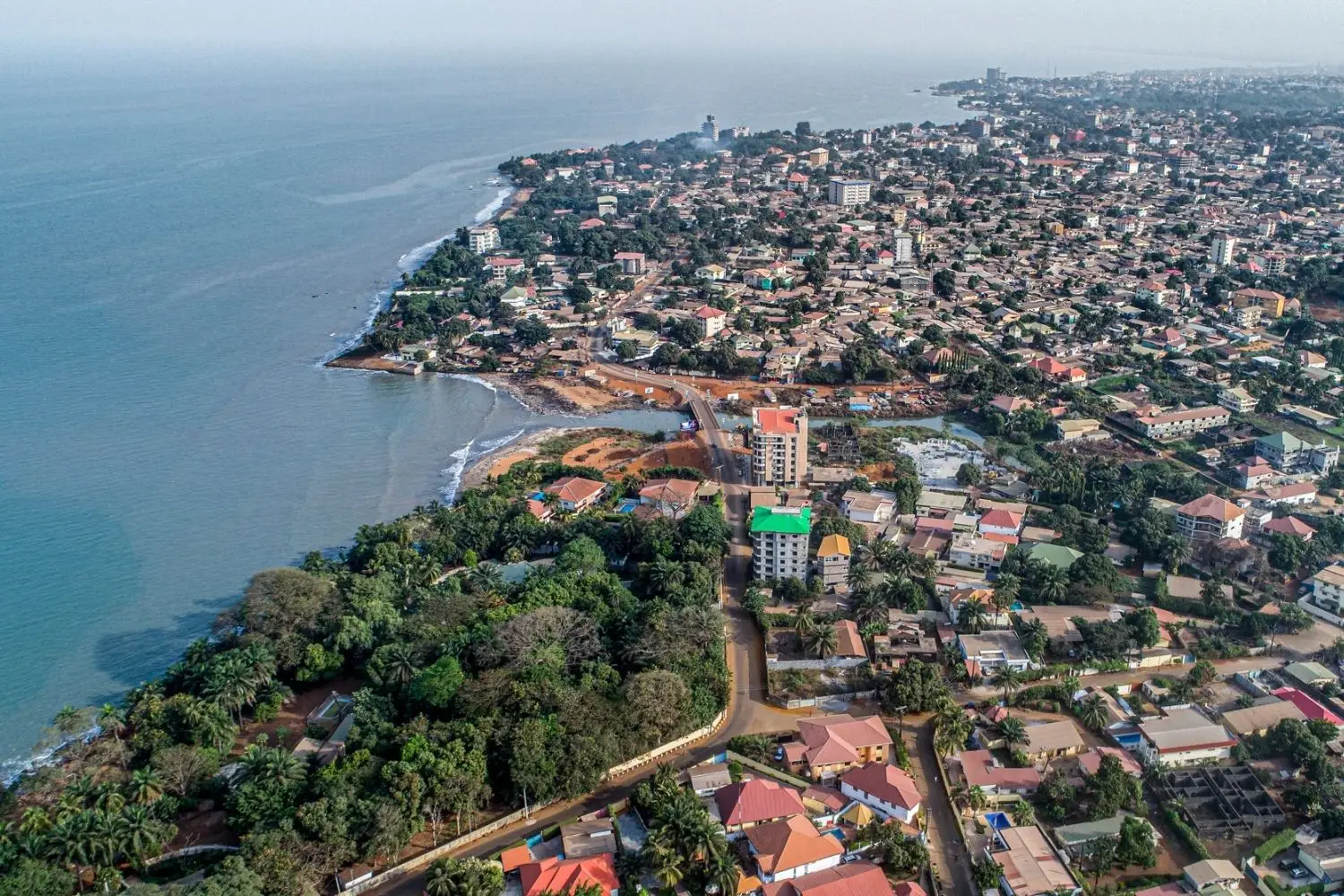Hire and pay employees in Guinea with 100% compliance and speed.
ADS handles payroll, tax, and local regulations.

Seamlessly onboard employees with compliant contracts, local benefits, and comprehensive HR support across all African markets.
Accurate, timely payroll processing in local currencies with tax compliance and statutory deductions handled automatically.
Stay fully compliant with local employment laws, tax regulations, and statutory requirements in every African country.
Comprehensive benefits packages including health insurance, pension contributions, and mandatory local benefits.
Manage employees across multiple African countries from a single platform with unified reporting and oversight.
Get started in as little as 48 hours with our streamlined workforce setup process and local expertise.
Navigate complex labor laws in 50 African countries with our team of local experts.
Full-service HR support from onboarding to offboarding for your international team.
Get your team up and running across the African continent in as little as 48 hours.
Ensure accurate and timely payments while offering competitive benefits packages.
Protect your business from costly compliance mistakes and legal issues.
Relocate your talent across African borders with expert visa & immigration support.
Whether you are testing a new market or scaling your presence in Guinea, ADS provides a range of related solutions to ensure your business remains compliant and operational at all times.

Save 80-90% on setup costs compared to establishing your own local entities in multiple African countries.
Streamline your HR operations across the African continent with unified Standard Operating Procedures (SOPs).
Your dedicated account manager ensures smooth operations and is always available for assistance, help or queries.
Manage employees across multiple African countries from a single HR provider, with unified reporting and oversight.
Manage your entire workforce from a single point of contact, with consistent processes across the African continent.
Seamlessly scale from 1 to 1000+ employees across Africa without the complexity of managing multiple entities.
Chief Human Resources Officer,
GetMyBoat
“Working with Africa Deployments allowed us to quickly hire top talent across East Africa without establishing separate entities. Their service is absolutely invaluable.”
Chief Operations Officer EMEA,
Global Finance Partners
Head of Legal,
Ergos Mining
An Employer of Record in Guinea is a third-party entity that legally employs workers on behalf of foreign companies, ensuring full compliance with Guinean labor laws, tax codes, and HR regulations. This enables businesses to hire locally without setting up a legal entity.
EOR services in Guinea provide a compliant and low-risk way to hire local talent, manage payroll, and navigate regulatory complexities without incorporating a local business entity. It accelerates market testing and team deployment.
Foreign businesses seeking to hire employees in Guinea without establishing a subsidiary benefit from using an Employer of Record. EORs are ideal for remote teams, NGOs, tech firms, and short-term projects.
An EOR in Guinea handles compliant payroll processing, ensuring accurate salary disbursements, income tax deductions, and contributions to local social security schemes. It centralizes payment and reporting responsibilities.
Yes, EORs in Guinea align employment contracts, payroll procedures, and terminations with local labor laws, reducing legal risk and enhancing governance. They act as legal employers of record on the ground.
Yes, EORs in Guinea create locally compliant employment contracts that reflect the employer’s terms while meeting national legal requirements. These contracts include all statutory clauses.
An EOR in Guinea ensures correct withholding and remittance of employee income taxes and employer contributions to social security and other statutory levies. This protects the client from fiscal penalties.
Yes, EORs in Guinea oversee lawful termination processes, including proper notice, severance pay, and documentation in line with Guinean labor laws. This minimizes legal exposure.
EORs in Guinea can onboard employees within days by handling legal registration, tax ID issuance, and contract setup, expediting employment without red tape. Delays from local bureaucracy are mitigated.
Yes, Africa Deployments Ltd (ADS) offers fully compliant Employer of Record services in Guinea, supporting cross-border employment and local HR management. ADS ensures payroll, tax, and labor law compliance across the region.
EORs in Guinea define probationary periods in employment contracts according to local labor regulations, allowing employers to assess new hires while remaining compliant. This includes proper duration and notice terms.
Yes, EORs in Guinea can employ both Guinean nationals and expatriates, managing all legal requirements for work permits, contracts, and social contributions. This ensures lawful workforce integration.
EORs in Guinea track and administer statutory leave entitlements including annual leave, sick leave, and maternity/paternity leave per local labor law. Leave balances are documented and payroll-adjusted.
EOR services in Guinea are valuable across sectors like mining, telecommunications, logistics, NGOs, and agriculture, where local hiring is crucial but entity setup is burdensome. Compliance is industry-specific.
Yes, EORs in Guinea can facilitate legally compliant remote work arrangements by aligning employment terms with labor laws and taxation frameworks. This supports distributed workforce models.